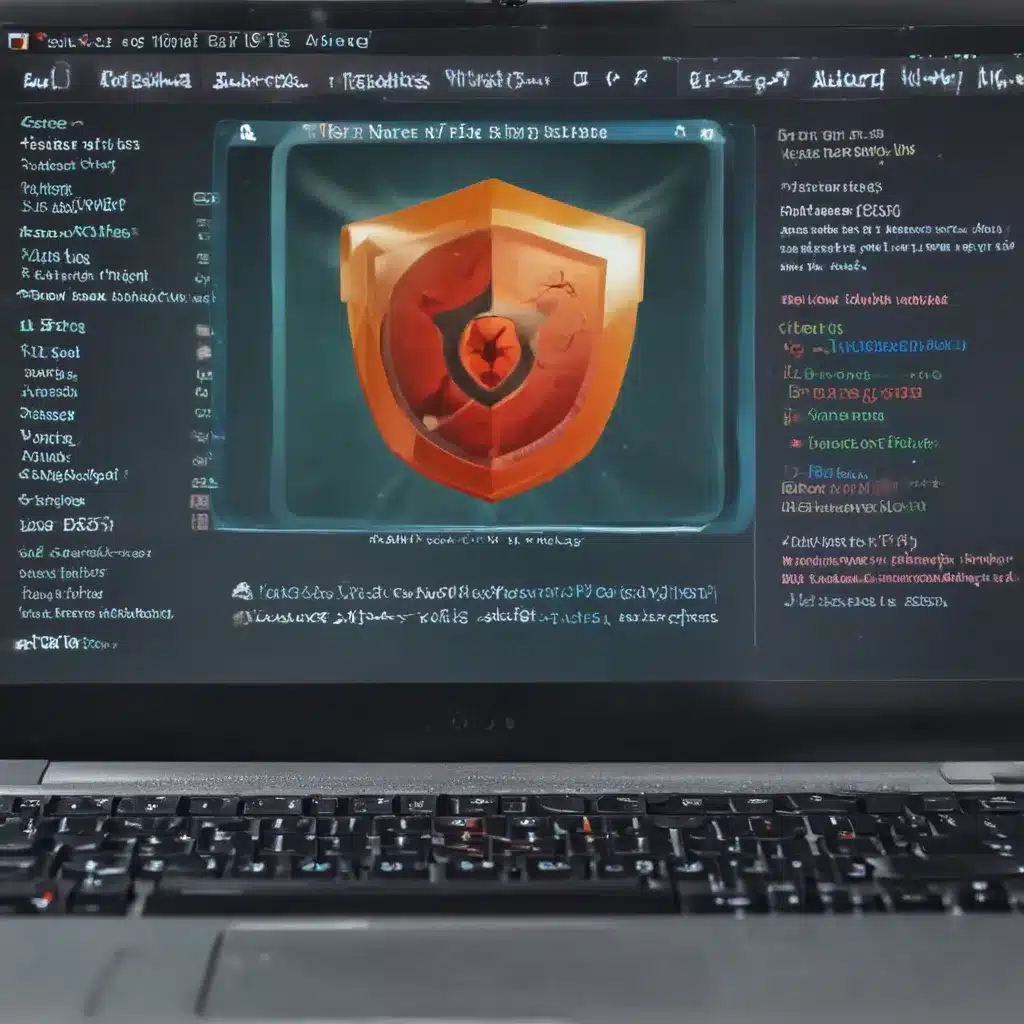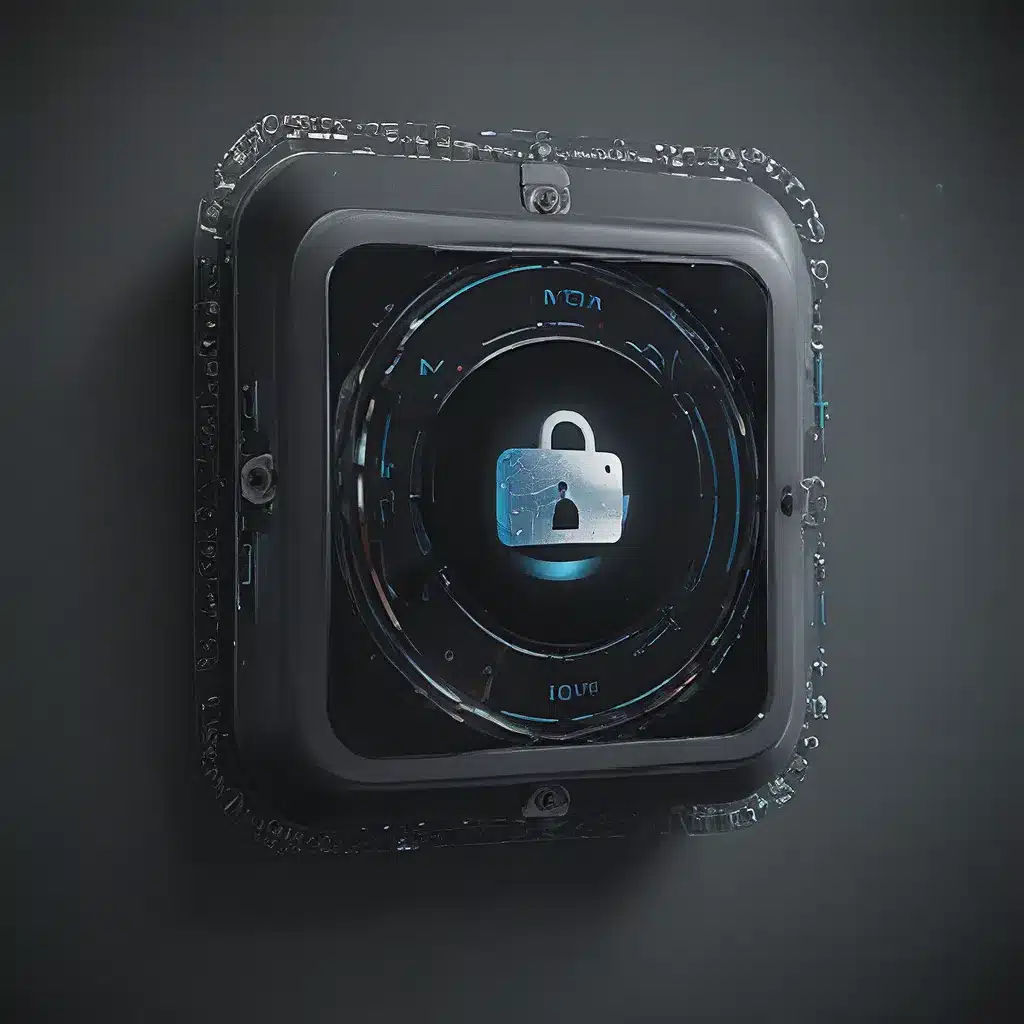A Cunning Trap Lurking in the Digital Shadows
In today’s fast-paced digital landscape, we entrust our devices with a wealth of sensitive information. A robust antivirus solution is our critical line of defense, shielding us from the ever-evolving threats that lurk in the shadows. However, what if I told you that even your antivirus software could be the very thing putting your digital security at risk?
Brace yourself, my fellow tech-savvy friends, for I am about to unveil the sinister world of fake antivirus software – a deceptive trap that has ensnared countless unsuspecting victims. These malicious programs masquerade as legitimate solutions, bombarding us with alarming pop-ups and claims of critical system infections. [1] Like cunning wolves in sheep’s clothing, they prey on our fears, tricking us into downloading their treacherous software, with disastrous consequences.
The Devastating Consequences of Fake Antivirus Scams
As if the very thought of our trusted antivirus betraying us isn’t unsettling enough, the true horror lies in the aftermath. Fake antivirus programs don’t just trick us – they can wreak havoc on our digital lives. [2]
Imagine, if you will, opening your wallet to find your hard-earned cash siphoned away, all in the name of “protecting” your system. That’s the financial toll these scams can take, as they demand payment for “fixing” non-existent threats, extracting money under false pretenses. But the damage doesn’t end there. These insidious programs may also install additional malware, compromising your system further and stealing your most sensitive data.
And if that weren’t enough, they often have the audacity to disable your existing antivirus, leaving your device vulnerable to real threats. It’s a digital nightmare that could turn your once-secure sanctuary into a minefield of cybercrime. [3]
A Real-Life Cautionary Tale: The Federal Trade Commission Strikes Back
Just last month, the Federal Trade Commission (FTC) stepped in to crack down on a major fake antivirus operation. [4] This scheme, which had targeted millions of unsuspecting users in the United States and abroad, had generated a staggering $50 million in illegal revenue through its deceptive tactics.
This case serves as a wake-up call, a stark reminder that these scams are not mere hypotheticals, but very real threats that are actively preying on the unwary. Cybercriminals have honed their craft, becoming increasingly adept at mimicking established brands or using generic names to enhance their deception. [5]
Navigating the Treacherous Terrain of Fake Antivirus Software
Now, I know what you’re thinking – how can we possibly protect ourselves from these cunning scams? Fear not, my friends, for I have a few tricks up my sleeve to help you stay one step ahead of the cybercriminals.
First and foremost, trust only reputable antivirus brands. [6] Gone are the days when a quick Google search and a flashy website were enough to convince us of a program’s legitimacy. Do your research, read reviews, and make sure you’re downloading software from a trusted source.
And speaking of those pesky pop-ups, heed my words – never, under any circumstances, click on them! [7] These are the digital equivalent of a Nigerian prince promising untold riches – they’re merely bait to lure you into their trap.
But don’t just take my word for it. Run regular scans with your legitimate antivirus software to ensure your system is clean and secure. [8] And always, always, stay informed about the latest threats. Knowledge is power, my friends, and the more you know, the better equipped you’ll be to navigate the treacherous terrain of the digital world.
Arm Yourself with Cybersecurity Awareness
In the end, the battle against fake antivirus software is one we must fight together. By understanding the dangers and adopting safe practices, we can collective ly combat these dark web threats and protect our valuable digital assets. So let’s prioritize cybersecurity, stay vigilant, and never let the cybercriminals catch us off guard.
After all, our digital lives are too precious to be left in the hands of those who would seek to exploit us. Let’s make a pact – from this day forward, we’ll be the masters of our own digital destiny, outsmarting the scammers at every turn. Who’s with me?
[1] Pasunuri, Sreenu. “Don’t Get Scammed – Beware of Fake Antivirus Scams.” LinkedIn Pulse, 1 June 2020, https://www.linkedin.com/pulse/dont-get-scammed-beware-fake-antivirus-scams-sreenu-pasunuri-a6d6c
[2] “TotalAV Scam?” Reddit, 10 Nov. 2019, https://www.reddit.com/r/antivirus/comments/dwlnlf/totalav_scam/
[3] Dh. “Don’t Get Fooled: Warning Signs of Fake Antivirus Apps.” LinkedIn Pulse, 28 June 2021, https://www.linkedin.com/pulse/dont-get-fooled-warning-signs-fake-antivirus-apps-linkedin-dk1yc
[4] “FTC Warns Public to Beware of Tech Support Scammers Targeting Financial Accounts Using Remote Desktop Software.” Federal Bureau of Investigation, 28 May 2019, https://www.fbi.gov/contact-us/field-offices/boston/news/press-releases/fbi-warns-public-to-beware-of-tech-support-scammers-targeting-financial-accounts-using-remote-desktop-software
[5] “How to Spot, Avoid, and Report Tech Support Scams.” Federal Trade Commission, 23 Dec. 2022, https://consumer.ftc.gov/articles/how-spot-avoid-and-report-tech-support-scams
[6] “Scammed by Non-Canon Support.” Canon Community, 3 April 2018, https://community.usa.canon.com/t5/General-Discussion/Scammed-by-Non-Canon-Support/m-p/405828
[7] “Your Computer is Infected’ – Fake Anti-Virus Pop-Up Alert Scams.” Scamwatch, 21 Nov. 2022, https://www.scamwatch.gov.au/news-alerts/your-computer-is-infected-fake-anti-virus-pop-up-alert-scams
[8] “Fake Anti-Virus Scam: How to Spot and Avoid It.” Apple Discussions, 15 Dec. 2017, https://discussions.apple.com/thread/8409015













